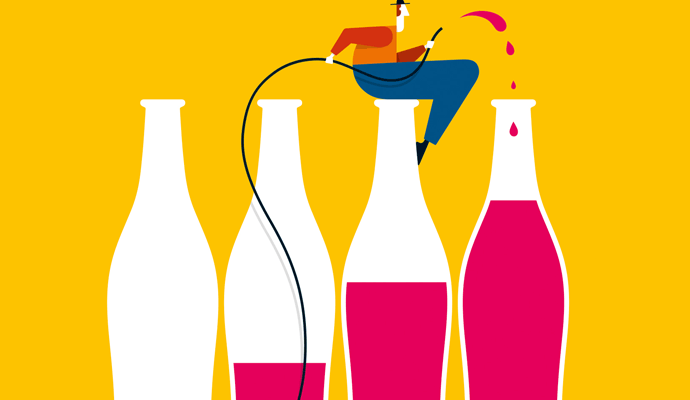A Double Dividend from Word of Mouth
Not only do businesses pick up new customers from referrals — those making the recommendations wind up becoming more loyal, too.
Title: Walk Your Talk: An Experimental Investigation of the Relationship Between Word of Mouth and Communicators’ Loyalty (Fee required.)
Authors: Ina Garnefeld (University of Paderborn), Sabrina Helm (University of Arizona), and Andreas Eggert (University of Paderborn)
Publisher: Journal of Service Research, vol. 14, no. 1
Date Published: February 2011
Businesses have long recognized the power of word of mouth: When customers recommend a restaurant or clothing store to friends, for example, they’re helping that business gain new clientele, at little or no cost.
But this paper looks at word of mouth from an opposite perspective, and finds an additional payoff: In telling friends about a favored business, service, or product, existing customers find that their own feelings of loyalty have increased. In fact, the researchers say, customers who are new to a product or business are particularly susceptible to believing their own testimonials to others, making them perfect targets for company-sponsored referral programs.
In two experiments, the researchers tested whether voicing a recommendation increased customer loyalty. The researchers chose to test products and services with which customers would be familiar, because familiarity helps customers quickly form attitudes; however, the participants’ level of experience with the business they were recommending was manipulated. Experience hardens customers’ attitudes over time. Because the opinions of less knowledgeable customers are not yet fully formed, the researchers theorized that their identification with a business might deepen when hearing themselves make a recommendation. Conversely, a customer who had extensive experience with a business would be less affected by vouching for it.
In the first experiment, 168 business school students were split into two groups; all received a positive description of a new, fictitious cell phone provider. Members of the first group were told that one of their friends was looking for a new cell phone, and were given the opportunity via the company’s website to recommend the phone and include a personalized message about it. Members of the second group were not given the option to spread the word. The researchers found that participants who spread the word had a higher level of “affective commitment” to the business; that is, they expressed a positive attachment to the phone provider.
The second experiment involved 342 passengers waiting to board a plane. As with the first exercise, the subjects were divided into two groups. This time, all the participants were asked to imagine that they had previously used a fictitious travel agency, and that their experience had been good. Some participants were told they had booked several vacation packages with the agency, and others were told they had used it only once. In this way, the researchers were aiming to create different experience levels but identical feelings of satisfaction.
Those in the word-of-mouth group were asked to write a recommendation about the travel agency to send to a friend. In follow-up questionnaires, this group again registered higher loyalty scores than the group that did not praise the agency. But within the word-of-mouth group, those who had less experience with the agency expressed a higher level of identification with the business than did participants who had more experience.
The researchers point to several implications for managers. One implication addresses concerns sparked by an influential study by David L. Stum and Alain Thiry, “Building Customer Loyalty,” published in 1991 in Training & Development Journal, which found that “up to 40 percent of customers who claimed to be satisfied switched suppliers without looking back.” When customers are already content, the authors of the new study suggest, encouraging them to spread the word would seem to be a good way to keep them coming back.
A second implication is that word of mouth provides more bang for the buck than was previously realized: Not only will referrals lead to more new customers for a business, but they also can provide additional financial returns from the existing customer base.
The third implication: When firms offer a referral reward program to strengthen ties with their existing customers, they should target newer, more impressionable customers.
Bottom Line:
When customers recommend a product or service, it increases their loyalty, meaning word of mouth is effective at both gaining and keeping customers. The effect is strongest in customers who have little experience with the product or service, making new customers perfect targets for marketers’ referral programs.


